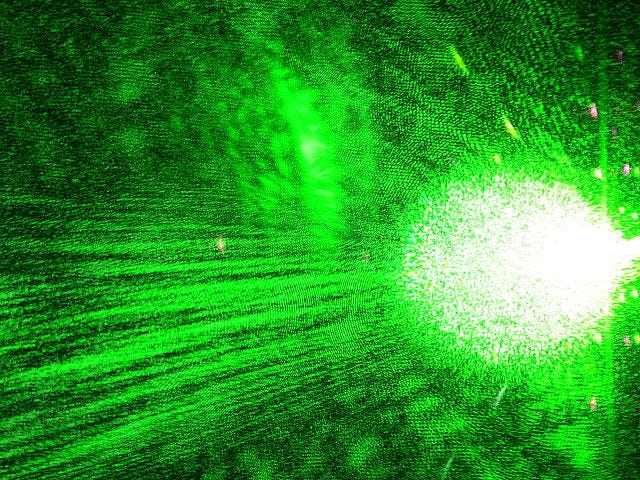Let There be Light
The Wave/Particle Duality of Light as a Metaphor for God
This is not a commentary on specifc religions or on the whole “does God exist?” question - God knows I can’t answer that. Merely a fun little theological thought experiment - to that end I’ve left the comments open for everyone to chime in with their thoughts - and feel free to tell me I’m craven idiot or heathen moron or anti-science or pro-science or whatever. Enjoy.
Is God light?
For believers, God is of course the light of soul, lights the path, and shines forth compassion and such.
But can light itself – actual light, that thing you are using to look at this now – be at least used as a very apt metaphor for God?
God is seen as everywhere always and in a very specific spot always. God being God, He (do not start with that) can do that, of course.
But this duality of appearance – because people are not God and have to figure things out for themselves - is one of the odder, more contentious, and most debated aspects of the nature of God.
Some religions focus more on the particular – God is doing any number of particular things at all times.
Other faiths (Unitarians, for example) see God in the universal sense with the everywhere-ness holding forth.
For humans, this tension can be rather confusing as humans tend to need pretty straightforward answers. But it could alleviate this sense of unknowing unease if we consider God as we consider the properties of light, because actual light itself has the same dichotomous unknowability – specificity and universality - at its core.
Light is very strange.
It is both a wave and a particle, inexplicably changing its nature depending (very simplified) on whether or not someone is looking at it.
The famed “double slit” experiment showed this phenomena. Very in a too-brief nutshell, when light is passed through a box front with two slits in it, it will create an interference pattern on the back wall, just as a wave would do (think of two rocks thrown into a pond and how the waves from each interact.) But if you block one slit, the light photons form a single impact area, just as you would occur if light were particles (like grains of sand.)
And then if you add a detector to the mix, the photons will make two distinct impact areas with both slits open. And then leave the detector in place but turn it off and you will see a wave pattern. And it gets even odder from there. (here are two better, more comprehensive explanations of what is arguably the most famous experiment in physics and in part the basis for quantum mechanics – text: https://www.space.com/double-slit-experiment-light-wave-or-particle and video:
In other words, whether or not light is a wave or a particle in large part – for all we know now – is based on whether or not we are watching it, just as how for believers God interacts with humans and the universe.
It’s almost as if praying were an act of observation, changing the nature of God from universal to specific, from wave to particle.
An easier (for me, at least) way to envision this seemingly intractable dichotomy is to look at a big fight scene in a movie – seems strange but it can shed some light, as it were, on the issue.
Fight (or battle) scenes – save for the individual cutaways and close-ups – are meant to be viewed in their totality, washing over the audience like a wave. But if – as you watch – you pick out one person (not a star – an extra) in the scene and focus on them you see the scene very differently. That single person becomes a distinct particle in the wave of the scene, in large part because you are observing them directly even as they are a part of the totality of the scene.
Pull back and the wave envelops you again.
And that could be the perfect metaphor for God.
Throughout the universe, God is a wave and can be seen as such. More amorphous spiritualities tune into this aspect and view God primarily through the lens of the ubiquity of the waveform of God.
More specific religions acknowledge the wave but see it as an overarching harbor for specific actions, the particles that play a direct role in daily life.
The ocean becomes a drop and then becomes the ocean again.
The wave becomes a particle and then becomes the wave again.
And both are right because, as with light, your vision and understanding of God could literally depend upon how and when you look and how and when you wish to look.
Let there be light, indeed.



Excellent!